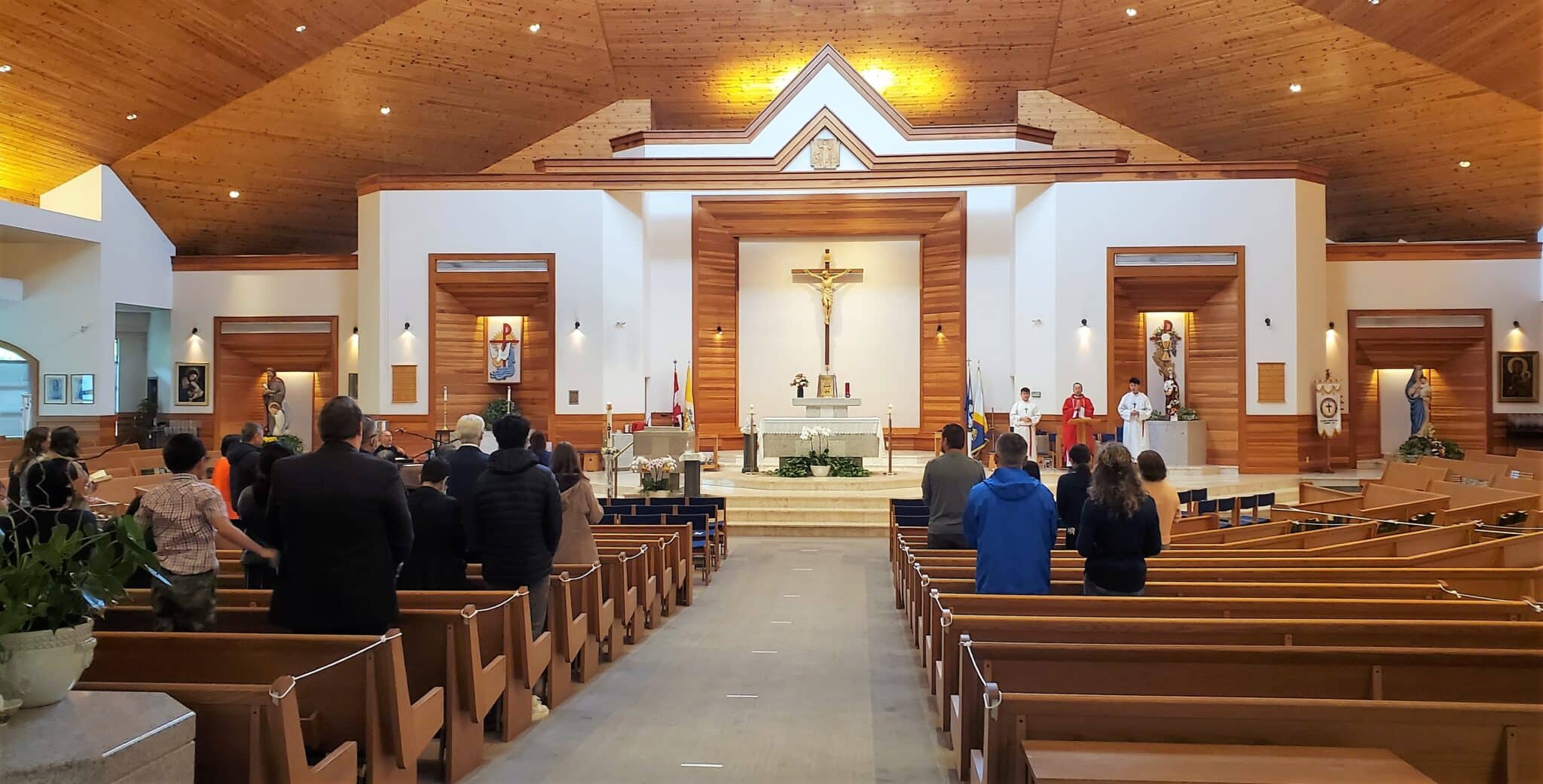Q: If every sacrifice of the Mass is offered for the Church, how can people request individual intentions?When an intention is announced at Mass, I feel rejected and that it doesn’t matter who or what I am praying for.
A: Every Mass celebrates the Church’s communion with God the Father, Son and Holy Spirit. The person for whom the Mass is offered does not receive all its benefits.
In 35 years as a priest, I have celebrated at least 11,000 Masses. Most of them were offered for some deceased person or for the special intention of a living person. But probably most people at those Masses were praying for other intentions closer to their hearts (family health, employment, safe delivery of a child, etc.).
The Eucharist is not some commodity that can be monopolized or hoarded, allowing certain people to benefit from it but excluding others. Masses are “offered,” not “bought.”
To avoid giving the very impression that you have described, the Church requires every pastor to offer one stipend-free Mass “for the people” on Sundays or holydays of obligation.
Parishes can accept stipends at other Masses on those days, although a priest can receive only one stipend per day. Extra stipends of Masses already celebrated are usually sent to the diocese, commonly for the priestly formation program or the priests’ retirement fund.
We cannot control God by our public or our private prayers. God needs no instructions from us about which people or situations need extra attention. Our act of praying for people and situations, however, already moves us to whatever compassionate action we can take and opens us to new corporal or spiritual works of mercy in the future.
Everything about the Mass is intended to draw us into closer communion with God and with those God loves: everyone. At every Mass, shortly after the Our Father, the celebrant prays: “Lord Jesus Christ, you said to your apostles: I leave you peace, my peace I give you. Look not on our sins, but on the faith of your Church, and grant us the peace and unity of your kingdom where you live for ever and ever.” The congregation responds, “Amen.” We count a great deal on the faith of God’s Church.
It would be an act of charity to pray for the person for whom a particular Mass is offered. Doing that does not mean that the people and intentions you are praying for are being neglected or deprived of God’s attention. At the general intercessions on Sundays and weekdays, there are always intentions that are not voiced but are still part of the Church’s prayer.
In each of the four Eucharistic Prayers for Masses for Various Needs and Occasions, the Church prays, “Be mindful of our brothers and sisters [names can be added here], who have fallen asleep in the peace of Christ, and all the dead whose faith only you can know.” It would be a subtle form of blasphemy to think that God remembers only the people or special intentions for which a Mass is offered.
To sum up: The Mass does not force God to act in a certain way but rather should open each of us more widely to God’s grace. In that sense, no prayer can ever be wasted.


